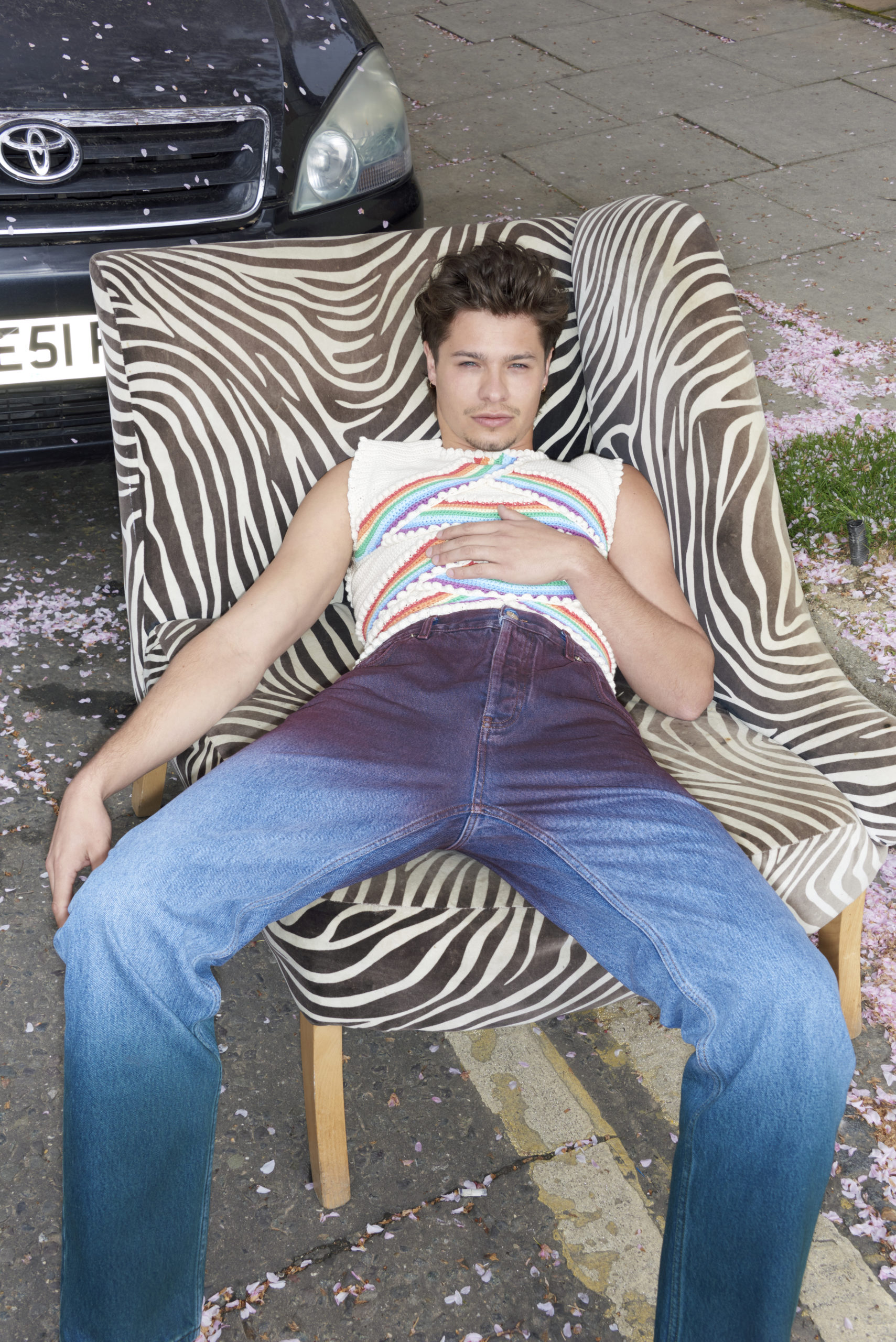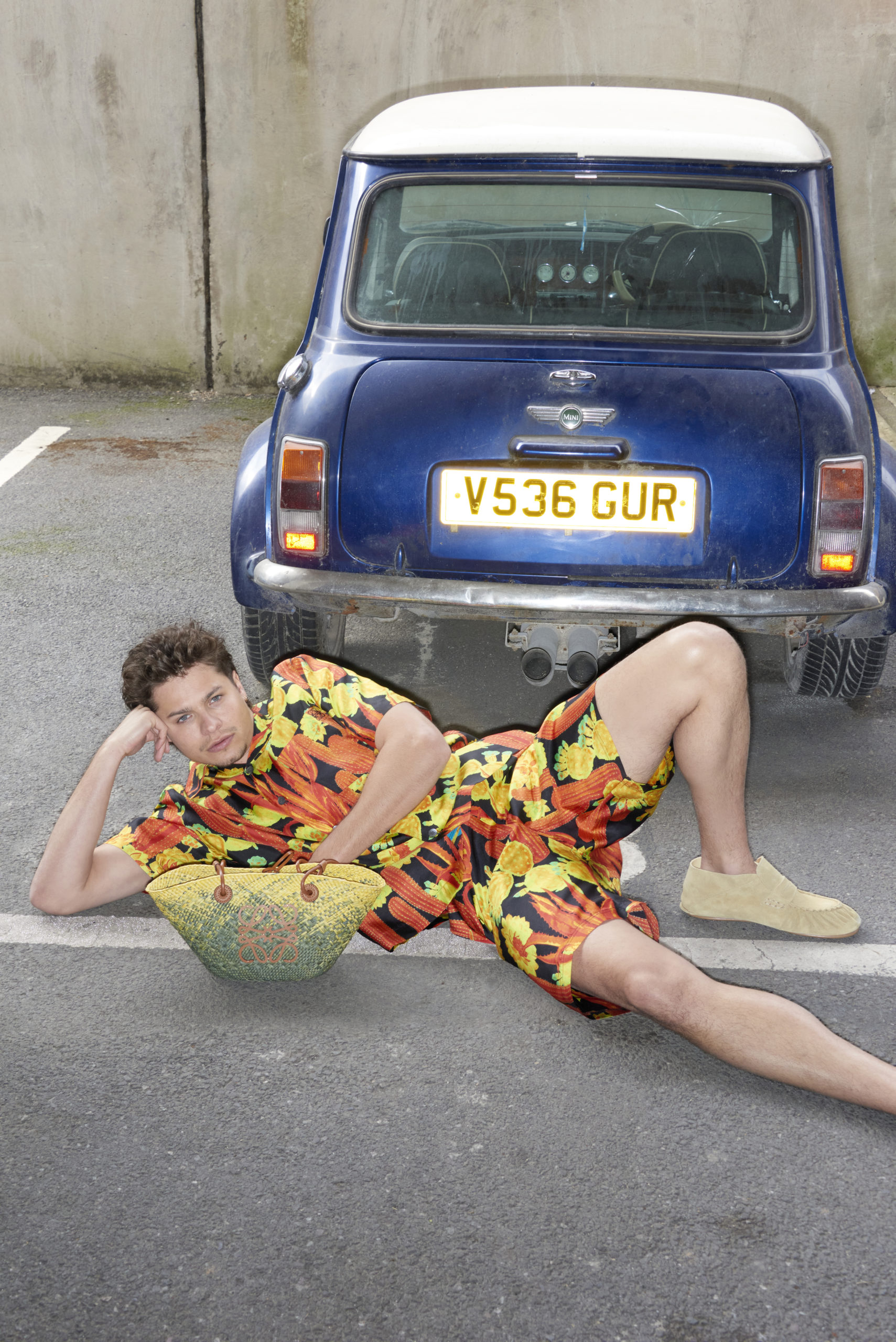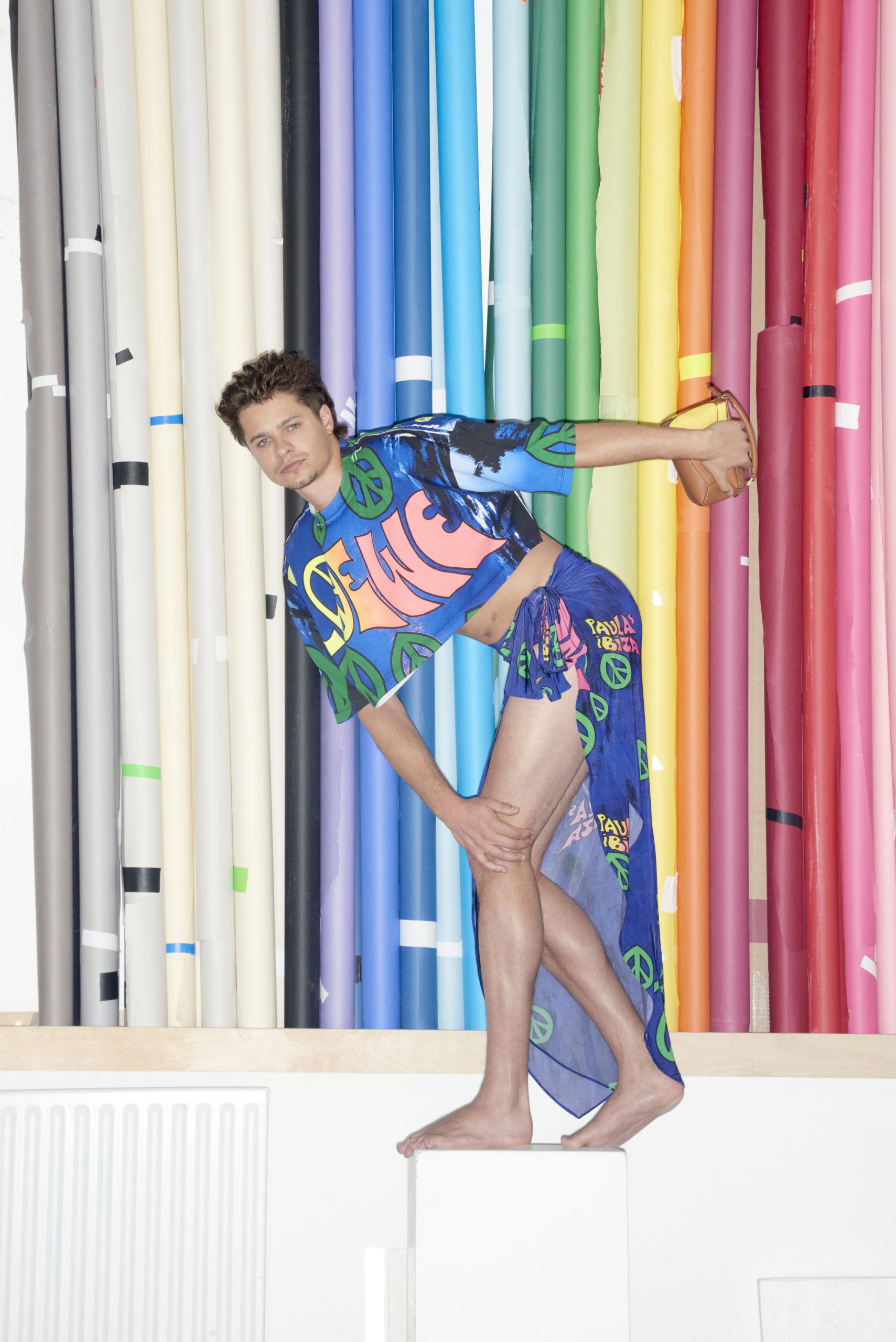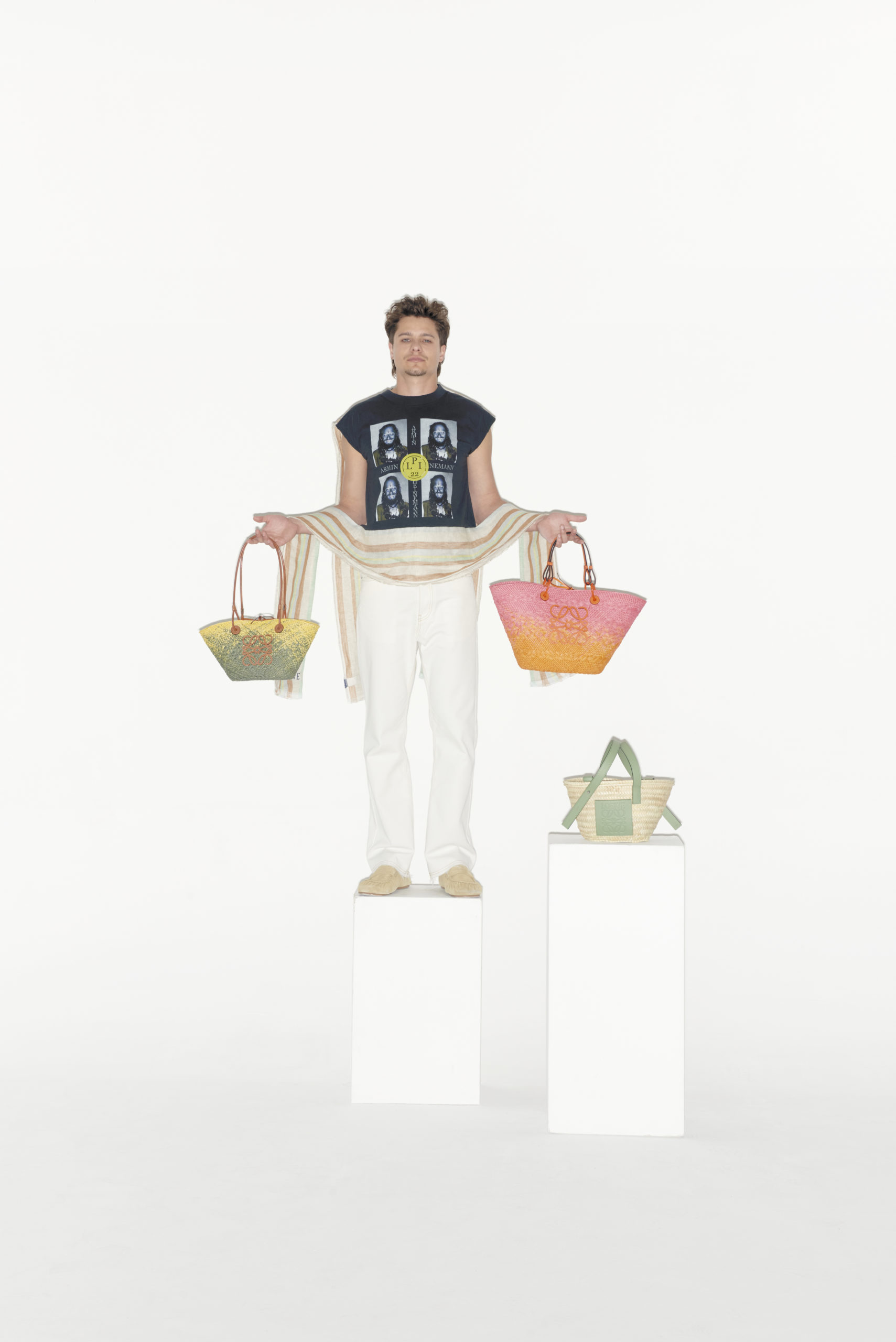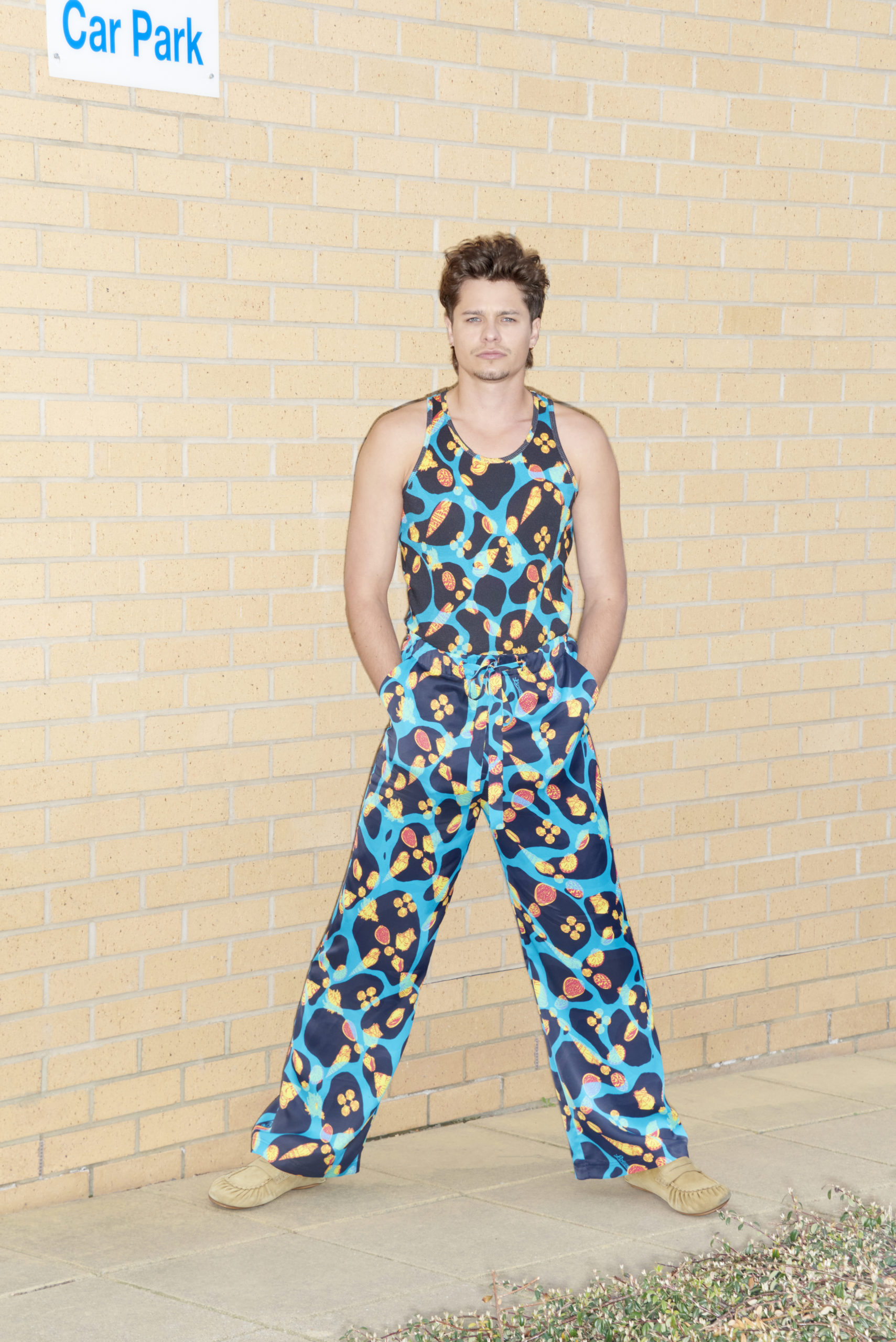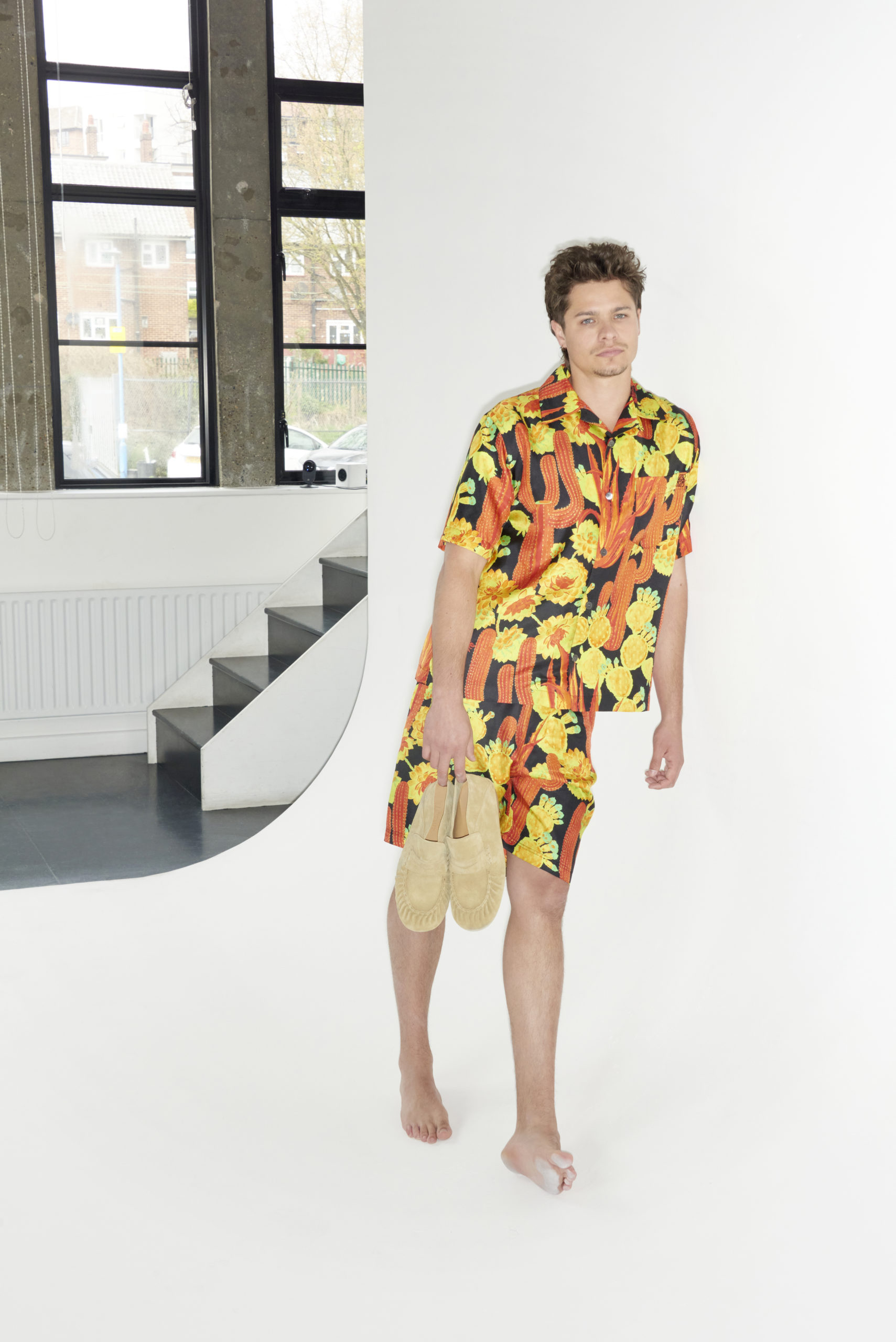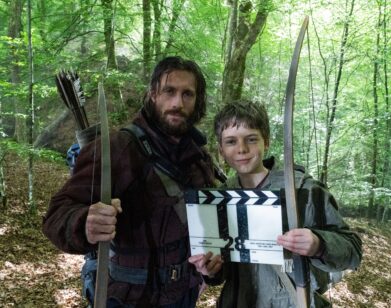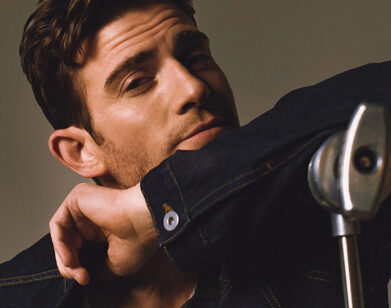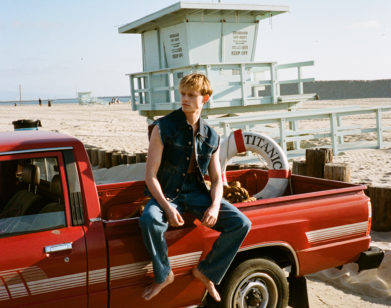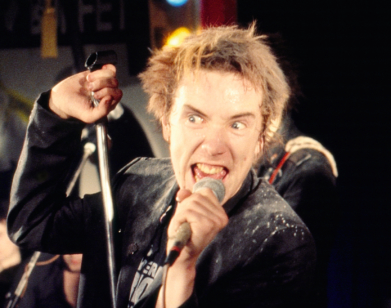film!
Toby Wallace on How to Play a Sex Pistol
It’s no easy feat to take on the role of an icon, but Toby Wallace appears to have mastered the art. After years of bit parts in daytime TV and short films, the 26-year-old actor landed his first lead role in the 2018 biopic Acute Misfortune as Erik Jensen, the fiercely ambitious biographer of the artist Adam Cullen. From there, Wallace captivated audiences with his delinquent charm in the Aussie indie Babyteeth, a heart wrenching coming-of-age dramedy that earned him a Best Actor award at the Venice Film Festival and a nod from the Australian Academy of Cinema and Television Arts. The role launched the Melbourne native into his biggest project yet—next month, Wallace will appear as Steve Jones, the legendary guitarist of the Sex Pistols, in Danny Boyle’s FX and Hulu miniseries Pistol. Despite his initial lack of familiarity with the iconic punk band, Wallace appears to have a lot in common with his roguish musical counterpart. Here, Wallace, pictured in the new Loewe Paula’s Ibiza collection, tells us about playing fake shows in iconic London venues, public urination in Beverly Hills, and getting inside the mind of a living legend.
———
JACKSON WALD: What drew you to the role of Steve Jones?
TOBY WALLACE: This project came along, and I did a bunch of dummy scenes for the audition. I didn’t have a good idea of who I was playing or what I was doing. The biggest thing for me was that Danny Boyle was on the project. Danny Boyle’s been my favorite director since I was a kid, so I was skitzing about it. I did the audition and got the callback. The Pistols are a bit before my time, so I didn’t really know anything about them. But from the research I did about Steve, I was like, “This is a fucking awesome character.” Steve’s a sweet, lovely, complicated guy, and incredibly honest. During the Zoom audition, I was doing the scene where Vivienne Westwood makes Steve try on a pair of pants. For the first take, I just pretended to take off my pants. But the second time we went through it, I said, “Fuck it.” I got butt naked on the Zoom with Danny, and pretended not to give a fuck. I think Danny quite liked that.
WALD: How did you learn to emulate Steve Jones and pick up on his eccentricities?
WALLACE: I met Steve a bunch of times. I watched a lot of videos and listened to a lot of recordings. I researched the tone of his voice when he was young, and his accent. Luckily, we had an accent coach. And the eccentricities—like the way that he played with his hair, the way he would hold himself—I tried to absorb those as much as possible. You pick and choose the stuff that’s going to work for you whilst trying to approach the scene in a healthy way.
WALD: What was it like speaking to someone who you knew you were going to be portraying?
WALLACE: I was so nervous, mate. I’d listen to his audiobook before meeting up with him. It was during COVID, so he and I used to go for walks around Beverly Hills, which is where he was living. The first time I met him, we walked down the main street in Beverly Hills, and he just started taking a piss on the side of the road. Right in the middle of Beverly Hills. So, I just joined him.We’d go on these long walks together and chat about everything—his life, my life, where our lives intersected emotionally. It was fucking awesome, dude. He’s so bluntly honest. I remember feeling like he was almost auditioning me while we were hanging out. He’d ask me all these really honest questions. I think it was a test of whether I would answer sincerely.
WALD: Do you remember any of the brutally honest questions he asked you?
WALLACE: He’d be like, “Do you like to party?” And I’d be like, “Yeah, I like to party.” He’s like, “What about heroin? You ever done that?” And I was like, “No, I’ve never done anything like that.” And he was like, “I have.”
WALD: Did making this miniseries feel different than when working in television or film?
WALLACE: Every job is its own mammoth to deal with. Television moves quite quickly from one scene to the next, one day to the next. TV gets a lot more coverage, and they have a bit more money to play with. This show, moved quickly, but it felt a lot like a film. There was a lot of space to play, which you don’t often get in television. That was the atmosphere that Danny created, where everybody had a bit more leeway with their character. He didn’t step on the actors too much. He empowered us to make our own choices. But telly’s a beast, mate. We worked on it for eight months or something, and we had about two months of band camp beforehand to prepare for all the band scenes.
WALD: What was it like to play actual live shows in front of audiences?
WALLACE: Insane, man. It literally felt like we were in a band. We’d be like, “Okay, we’ve got to prepare for the gig on Thursday.” And we’d play at these fucking insane places all over London. We played at the Apollo, which used to be called the Hammersmith Odeon. They’d get 100 extras in [the crowd], and when you give them the green light, they will just do the most bananas shit you’ve ever seen in your life. Danny would come on stage beforehand and give a speech about punk rock, and what it meant to young crowds. I remember him saying that these legendary acts of the time, like David Bowie, felt like they were of another world. But the Sex Pistols would get into it with the audience—you could touch them, you could reach out. They were very much of the streets, and that got the audience riled up. At the American gigs, that energy was a lot more volatile, a lot more threatening. The audience would shouting profanities, and that would get the band riled up.
WALD: Did it feel like you were acting?
WALLACE: No mate, it felt like we were doing gigs. I wanted to be in a band for a couple of years, and then I was in the Sex Pistols. It was insane.
WALD: This is not the first time that you’ve acted in a biopic. How did that experience inform your approach to this role?
WALLACE: That’s a good question. I remember talking to Erik [Jensen] quite a few times beforehand. I got accomplished what I wanted to achieve when playing someone real. Erik, obviously, is completely different from Steve. But the key to playing someone is understanding what drives them, what trauma they’ve had in their lives, their patterns of relationships, and what they want. But both of those characters were really ambitious. One thing I learned when playing Erik was that I didn’t appreciate, until halfway through that movie, how insanely ambitious he was. He was doing guerilla journalism, and he was so engrossed in trying to write the greatest biography that he possibly could. In the same way, I think Steve had similarly insane drive.
WALD: How do you accurately represent such an influential artist while also depicting the tragedy of what these young, troubled kids experienced?
WALLACE: You have to focus on the scene at hand. You can never get too confused by the bigger picture. Danny said very early, “We all understand the tragedy of how this story ends. But you can’t play the end at the beginning. You need to take it scene by scene.” How do you eat an elephant? One bite at a time. I don’t think you can perform their downfall before you’ve lived their comeuppance. Especially with Sid and the band falling apart—when it comes to that point in the story, you concentrate on it, but beforehand you’ve got to understand that this band was the only thing they had at the time. They were a bunch of kids having the most fun ever, and they created one of the biggest musical movements in English culture—almost in all cultures.
WALD: What elevates them above other groups of the era?
WALLACE: Their simplicity and anger. They were so unhinged. They weren’t out there to put on a show. They were out there because kids from the street were coming to their gigs, and they wanted to fucking jump around and let loose. And that’s where these guys came from. They weren’t looking to succeed, really. They were there because they loved the music. They were the proof that you could be from any walk of life, and you could get up on stage and make music.
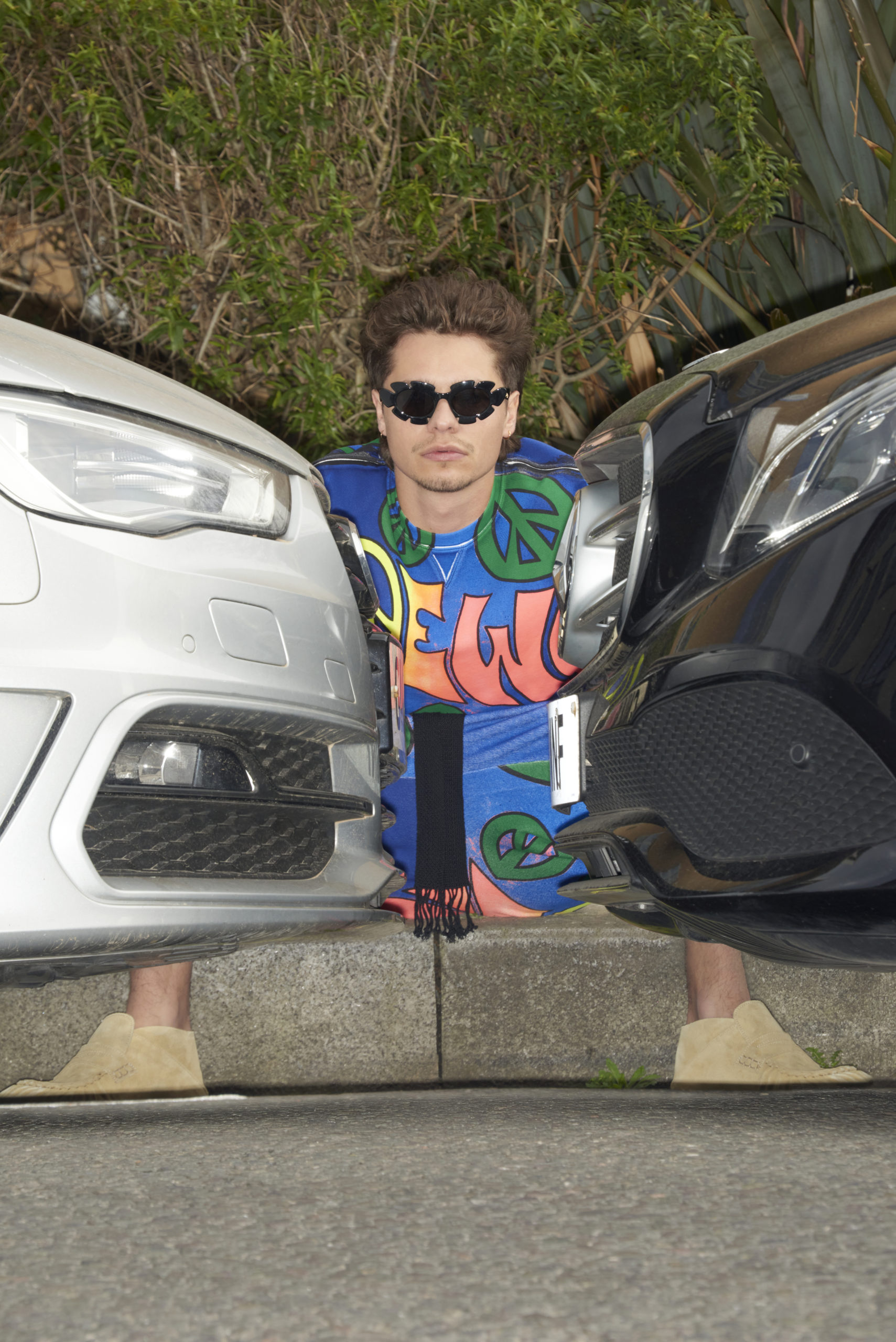
All Clothing and Accessories by Loewe Paula’s Ibiza
———
Photo Assistant Stefano Della Salda
Grooming by Lucy Halperin
Production Paige Viti at Born Artists

